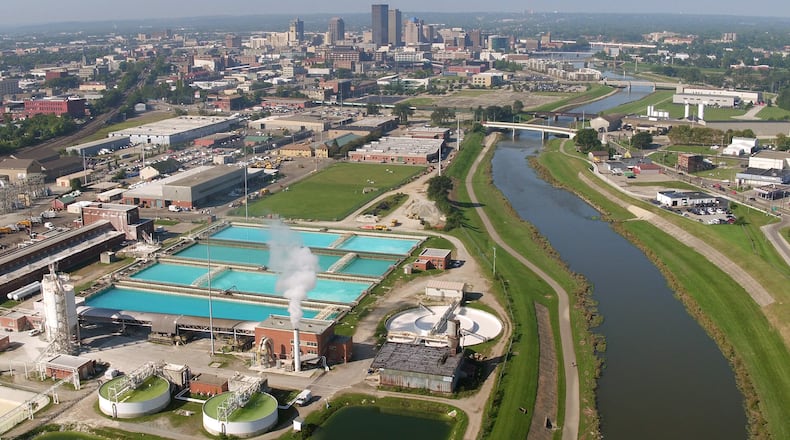The designation under Superfund law would allow federal funds to be used to clean up groundwater contamination due to PFAS spills and mandate responsible parties report spills of PFAS and be held liable for cleanup.
» UNMATCHED COVERAGE: Ohio lawmakers react to new EPA plan for PFAS contaminants
PFAS contaminants have been found in parts of the city of Dayton water supply as well as on base at Wright-Patterson. Per- and polyfluoroalkyl substances — known regularly as PFAS — are a group of man-made chemicals that include different types of substances including PFOA, PFOS, GenX and others.
PFAS can be found in some firefighting foams, household products like water-repellent fabrics, nonstick products like Teflon, waxes, polishes, and even some food packaging, according to the EPA.
PFAS chemical compounds turned up in March at Dayton’s Ottawa Water Treatment Plant, the first time the compounds — believed to be safe when below 70 ppt for lifetime exposure — were detected in water after the treatment process. The chemicals have also been found in part of the Wright-Patterson Air Force Base’s water supply.
In October 2018, Dayton filed a lawsuit to hold companies accountable after PFAS chemicals contaminated the city's water supply.
“As PFAS contamination becomes a growing concern for communities across the state and country, it’s time for the EPA to step up and declare these chemicals as hazardous substances,” said Sen. Sherrod Brown, D-Ohio, who joined the bipartisan legislation. “Local communities shouldn’t have to worry about the safety of their water supply. This designation will finally give states the answers they deserve and help hold bad actors accountable.”
» UNMATCHED COVERAGE: DeWine takes steps to position Ohio as military powerhouse
Sen. Rob Portman, R-Ohio, also told this news organization that he is encouraged to see the EPA is “taking a close look at this, and will be engaging in processes with the public, stakeholders, and experts.”
In February, the EPA announced that it is implementing its “first-ever comprehensive nationwide PFAS Action Plan.” Critics say the plan is too vague to address the contaminants in a timely fashion.
“This so-called ‘action plan’ on PFAS is really a non-action plan, designed to delay effective regulation of these dangerous chemicals in our drinking water,” said Wenonah Hauter, executive director of Food & Water Watch, in a statement on Twitter.
FIVE MILITARY READS
• 5 key facts we learned from Wright-Patt active shooter report
• Air Force creates new pitch day to give away $40M to startups
• Shutdown affects local workers: 'It got real for us'
• For Dayton-area veterans, food insecurity still poses issue
About the Author
